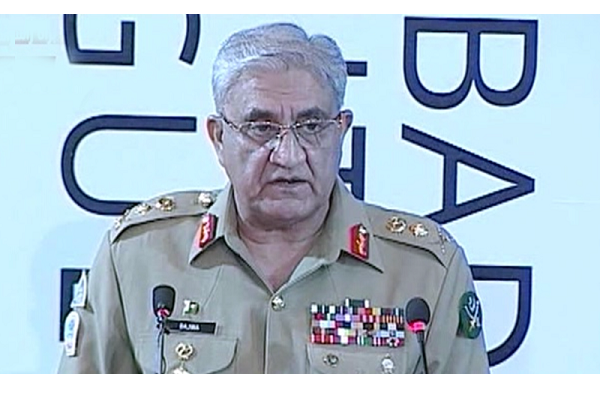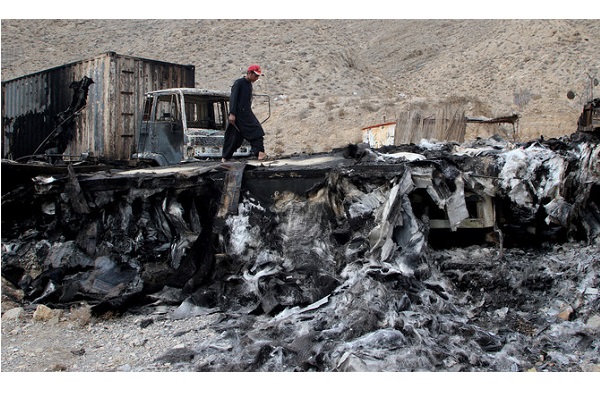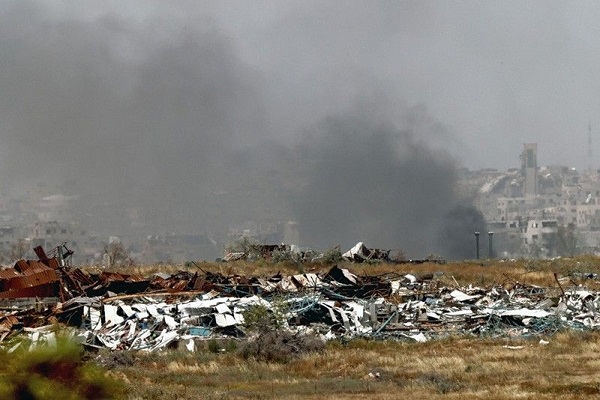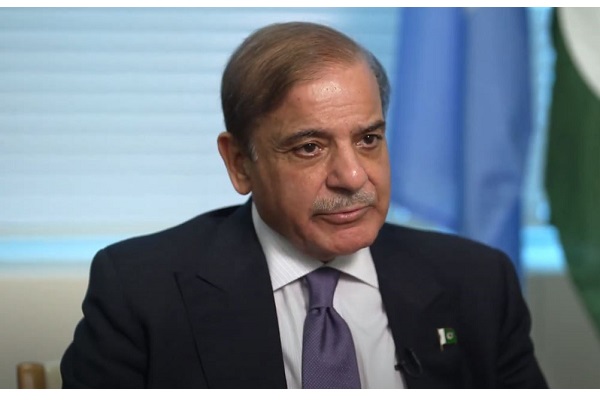QUETTA: Heavy rains, thunderstorms, and hailstones continued to lash various districts of Balochistan, including its capital, on Saturday
WASHINGTON: Taliban Foreign Minister Amir Khan Muttaqi had a detailed meeting with Pakistan’s former army chief Gen Qamar Javed Bajwa before asking India to send back its diplomats and technical staff to Kabul, says a new book on Afghanistan’s de facto rulers.
The Return of the Taliban reveals “the pivotal decisions leading to the Taliban’s seizure of power” and describes “how as rulers they struggle to reconcile pressures for transition with their rigid ideology”, said Marvin G. Weinbaum, the senior scholar of South Asian affairs in Washington.
The book is authored by Hassan Abbas, who teaches international relations at the National Defence University (NDU), Washington, and will be released in the US later this week.
India’s return to Kabul “could not have happened without Pakistan — and Pakistan acted this way because it just might open up prospects of some aid for the Taliban in Afghanistan,” Mr Abbas writes, arguing that Pakistan is as desperate about getting financial support to run Afghanistan as the Taliban themselves.
Upcoming book claims Kabul wants to mend fences with New Delhi for sake of ‘international legitimacy and recognition’
The book points out that India has strategic interests in Afghanistan, although it notes that unlike Russia and China, India had cut off diplomatic ties with Afghanistan after the Taliban takeover.
But the book also notes that “India is now seriously reassessing its position and moving towards a balancing act in its effort to engage with the Taliban and help stabilise Afghanistan”.
Discussing why the Taliban are eager to mend ties with India, the book says that “the Taliban desire is simple — international legitimacy and recognition”. Kabul’s new rulers also need “huge external investments … to reconstruct and revive the country” and India has the resources to do so.
To demonstrate Gen Bajwa’s influence in Afghanistan, the book narrates the story of Taliban minister for finance Hidayatullah Badri, who was also known by the name of Gul Agha Ishaqzai, who is said to have suffered at the hands of the Pakistani security apparatus following 9/11.
Later, Mr Muttaqi “personally took him to Gen Bajwa to extend the hand of friendship. Only Mr Bajwa’s favorable nod gave him the opportunity” to become the country’s finance minister, the book claims.
The book also discusses former ISI chief Faiz Hamid’s visit to Kabul soon after the Taliban takeover, claiming that Foreign Office had advised Gen Hamid to stay at the Pakistan embassy in Kabul, “but the overconfident spy chief dismissed it”.
Later, at a meeting with Pakistani politicians, including Foreign Minister Bilawal Bhutto-Zardari, he defended his action saying that US and Chinese intelligence chiefs had also visited Kabul around then.
He was reminded that “he was the only one photographed” and “photographs and video clips of him sipping tea in the Serena Hotel, Kabul, went viral”.
The book argues that the “visuals provided evidence of the huge influence” Pakistan had on the Taliban and hurt Pakistan as well as the Taliban.
The book claims that in the early days of the Taliban takeover, Gen Hamid requested the Taliban high command to “offer both Abdullah [Abdullah] and Hamid Karzai some high-sounding positions” but they did not agree to do so.
The book also underlines China’s desire to stay engaged with the Taliban regime, noting that “China not only kept its embassy open but also welcomed the Taliban’s new status” and urged the UN Security Council to unfreeze Afghanistan’s funds.
The book also reviews the growing influence of the IS militant group in Afghanistan, noting that from August 2021, when the Taliban captured Kabul, to August 2022 it claimed responsibility for 262 attacks in the country.
“This trend was an important agenda item in the conversation between ISI chief Lt Gen Nadeem Anjum, and CIA Director William Burns in early May 2022, in Washington. The Pakistani delegation included the former ISI chief Gen Hamid as well,” the book claims.
“Mr Burns told them that at this rate of growth, IS could gain control of 20 per cent of Afghanistan by mid-2023. In response, Gen Anjum stressed the need for targeting (the group’s) top leadership … and intelligence sharing.”The book says that at the end of the meeting: “both sides reached an interesting conclusion, … the Afghan Taliban are no longer a primary threat to the national security of the US and Afghanistan’s neighboring countries.” It’s ISIS.
You May Also Like
GAZA: Hamas has said it was studying Israel’s latest counterproposal for a Gaza ceasefire, a day after media reports said a delegation
ISLAMABAD: Prime Minister Shehbaz Sharif has ordered an increase in the wheat procurement target from 1.4 million tonnes to






